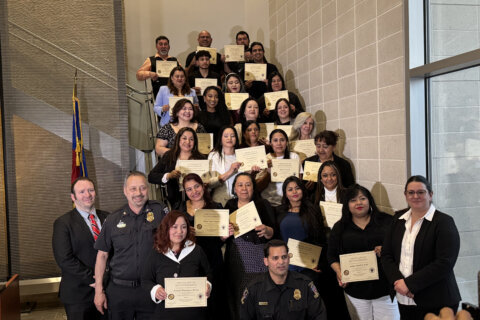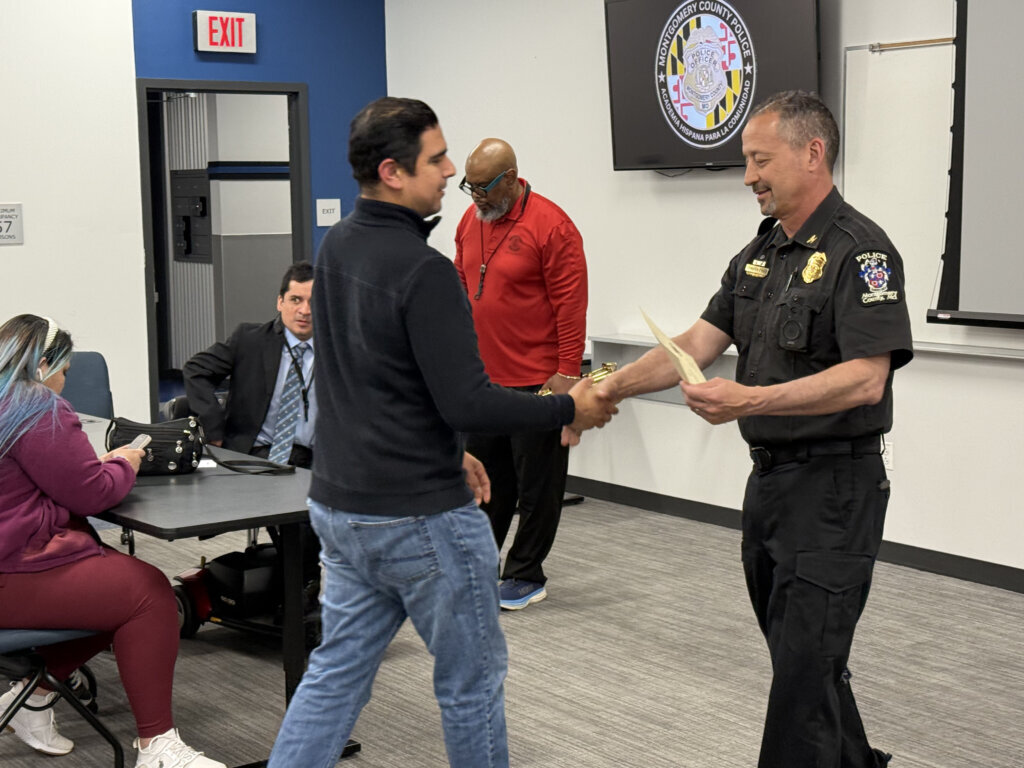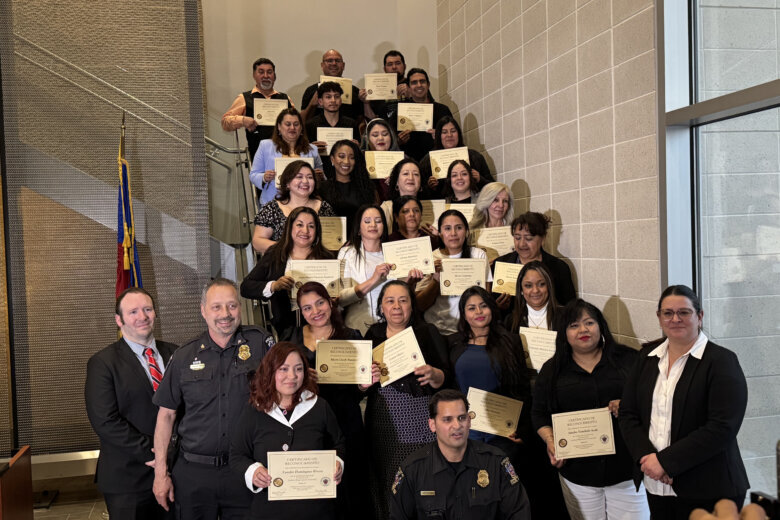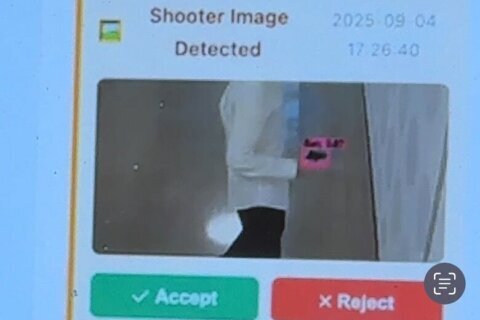
At a Montgomery County training facility in Gaithersburg, Maryland, one by one, members of the county’s Hispanic community stepped up to collect their certificates for a 14-week class aimed at better connecting them with their police department.
“Anytime we can connect with our communities, it helps build trust, builds those relationships,” Montgomery County Police Chief Marc Yamada said. “The best way, I think, that you can get to understand somebody, to get to know somebody real well, is to actually sit down and meet with them face to face.”
The class, which is taught in Spanish, is called “Academia Hispana para la Comunidad,” translated in English to: “Hispanic Academy for the Community.”
“We talk about the functions of the police department. We talk about the different units that exist in the department,” Officer Carlos Cortes said of the class.

From sessions on gang activity, to how to spot fraud, and what a day in the life of a K-9 and their handler is, the class covers a wide range of topics.
A similar English language class exists, but Cortes said with the county having a large Hispanic community, in which many do not speak English, this is a way to reach those residents.
“It is really important to get to know them by speaking their language, so that they can understand us, and they can share their concerns with us, because it is very important for them to trust the police,” Cortes said.
Maria Isala Garcia, of Rockville, said, as a mom, the discussion about how drugs can impact the community — in particular, children in the community — was so important.
“I’m more aware how the things are going on in high schools, middle schools around the community,” Garcia said. “They’re teaching us not to be afraid.”
What the police do — and don’t do
Ingrid Lizama also graduated from the program, which she said she first learned about on Facebook. She said she was fascinated about hearing what the SWAT teams do.
“It’s kind of one of those things that you see on TV, but you really don’t think that they’re needed here in the community, but they are here just in case something ever happens,” she said.
With a lot of news about immigrants being forcibly removed from the country, she said the class made it clear the police department will not ask a person’s immigration status.
“We hear about a lot of deportation. They’re not there to do that,” Garcia said.
The police chief said that is one message he hopes the community takes from the program.
“My message is, simply, I don’t care what the color of your skin is, what country you were born in or what language you speak, we will treat everybody in this county fairly, equitably and on the same level,” Yamada said.
Get breaking news and daily headlines delivered to your email inbox by signing up here.
© 2025 WTOP. All Rights Reserved. This website is not intended for users located within the European Economic Area.









